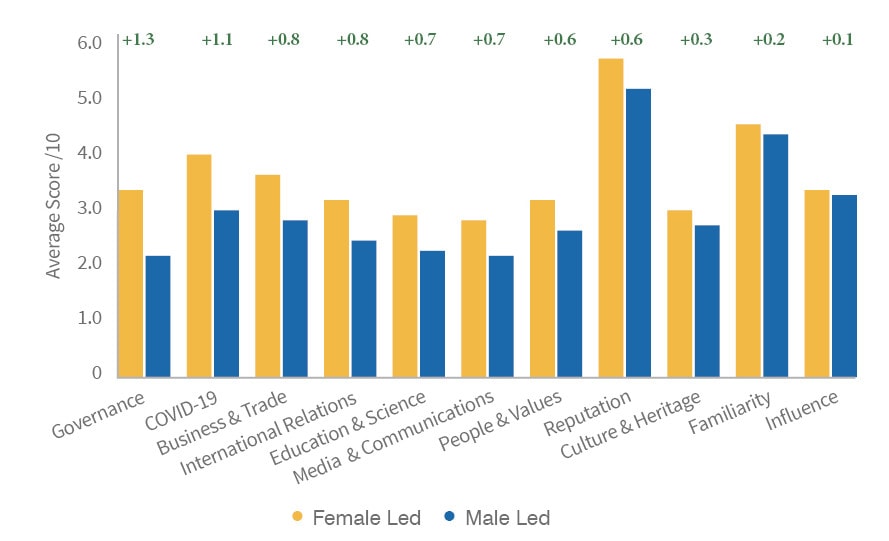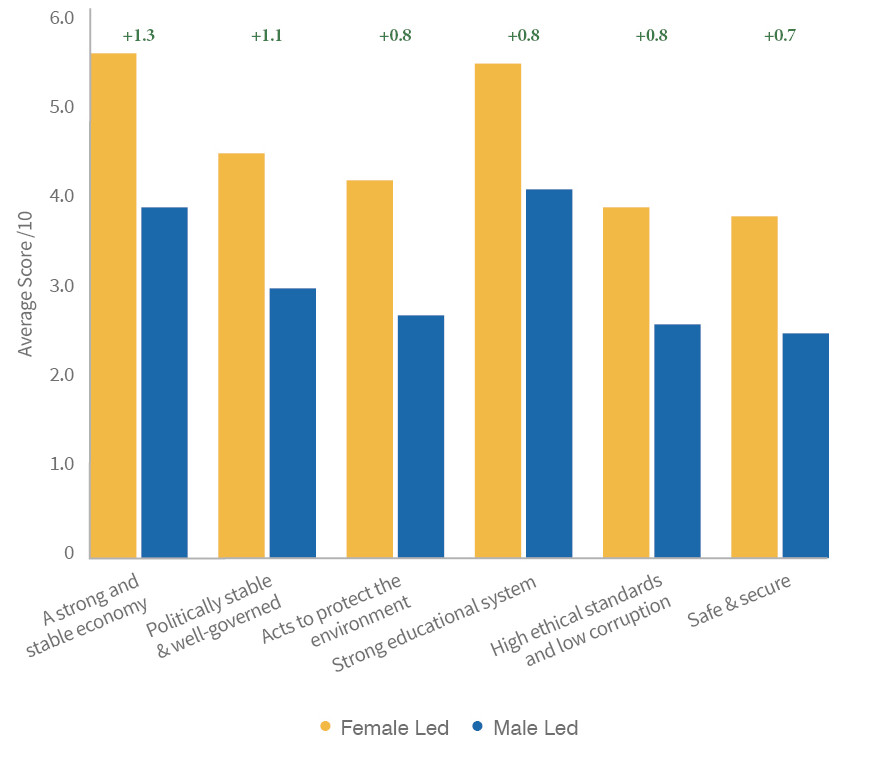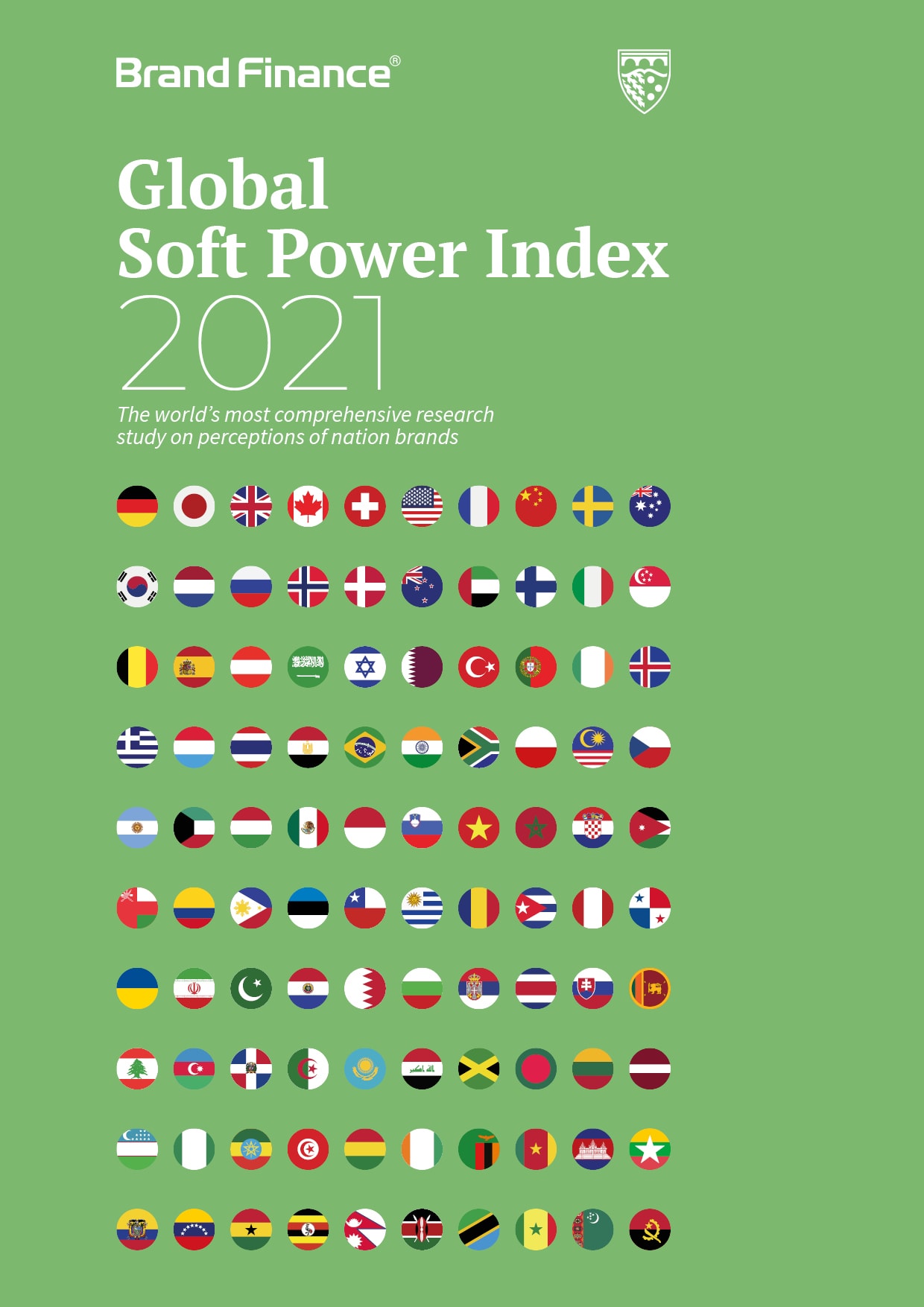A lot has been written about how female leaders have managed the pandemic better than their male counterparts. Realising that most articles were anecdotal, and given our extensive Global Soft Power Index database, during 2020 we set out to answer if female leadership had a positive impact on nations’ soft power.
Our analysis showed that nations led by females outperform, on average, their male-led counterparts across all of the 11 metrics covered by the Global Soft Power Index, with the most significant lead for Governance, COVID-19 handling, Business and Trade, and International Relations.

Looking at a more granular level, of the 34 statements that the General public audiences were asked about, female-led nations excel in all but three metrics. Female-led nations have the most significant lead on measures that relate to safety, security, and stability. Attributes that male-led nations score better than female-led nations are influential in arts and entertainment, food the world loves, and perceptions of being fun - all arguably factors that are driven by the nation’s longstanding culture rather than governance and leadership.

During a year of disruption, chaos, and uncertainty, notably, a select few female leaders have been commended for their stable leadership and empathic approach with Angela Merkel and Jacinda Ardern also navigating their nations to be the best perceived at their handling of COVID-19 among the specialists and general public audiences, respectively.
The attributes that female-led nations most significantly outperform male-led nations on are widely regarded as attributes that lead to long-term success. If we take a closer look, we can see that most of these variables are related to attributes in which women are considered to excel by political leaders.
According to Dee Dee Myers (2009), former White House Press Secretary, political leaders, and voters consider that women leaders excel at “caretaking skills”, “team-building”, and “motivating others”, and they “tend to be more pragmatic and results-oriented (…) less consumed by the constant who´s-up-and-who´s-down scorekeeping aspect of the political game.”1 Women focus less on the swings of short-term popularity, and more on the endgame.
This long-term orientation, together with their ability to compromise, listen, and work across party lines, are key to lead effectively in the current situation in which polarization, partisanship, and divisive narratives are stalling progress.
These gender traits seem to be particularly effective in leadership during a crisis. Zenger and Folkman (2020) explain that women leaders face a “glass cliff” when they are advancing towards the highest levels of an organisation: “when a company is in trouble, a female leader is put in charge to save it.”2 According to these researchers, during a crisis, we look at leaders that show honesty, integrity, adaptability, security, collaboration, and empathy. These are the traits that are more often being displayed by women. As Kofi Annan put it, “for generations, women have served as peace educators, both in their families and in their societies. They have proved instrumental in building bridges rather than walls.”
This unifying drive, together with the transformational leadership style that is associated with women leaders, provides both the strength and flexibility that are required to thrive in extremely volatile and uncertain contexts and is evidenced in this year’s Global Soft Power Index survey as the general public and specialists in different fields are recognising this.

